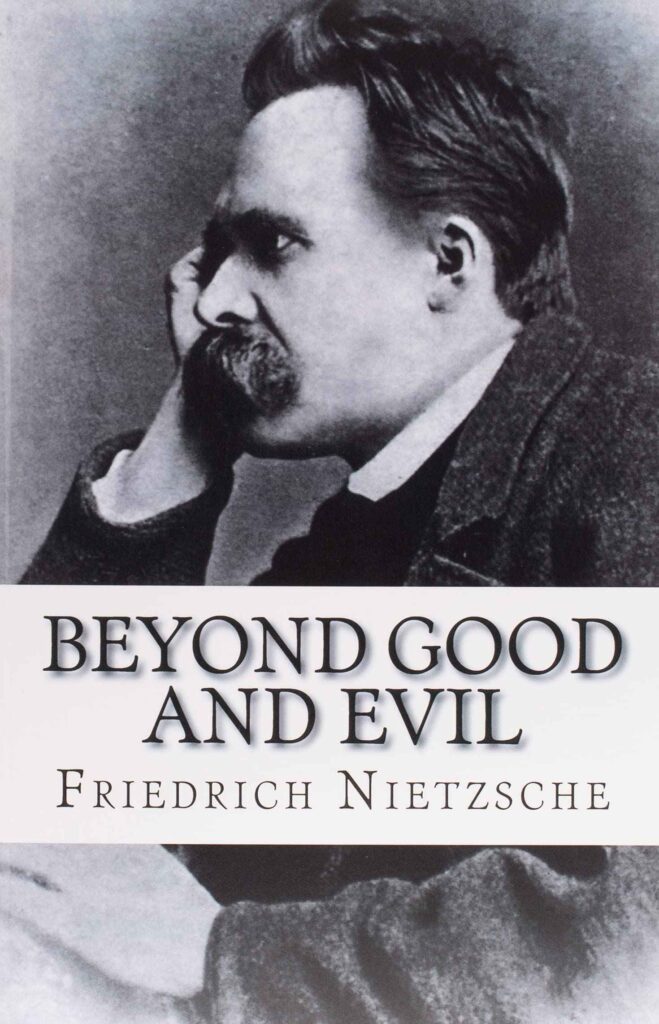
Friedrich Nietzsche is known for his work Beyond Good And Evil, which provides an in-depth look into the complex issues of morality and ethical systems. This work has been noted as an important milestone in the development of philosophical thought, as it raised the question of how to determine good and evil in an impartial manner. Nietzsche’s thoughts on this topic have been highly influential, providing the foundation for several theories on morality and justice. Beyond Good And Evil also provided a unique perspective on the idea of a single, universal morality, challenging philosophers to think more deeply about the underlying dynamics of moral decisions.
Beyond Good and Evil by Friedrich Nietzsche is a potent examination of how morality affects the choices we make. He held that moral principles should be assessed in light of the circumstances and eras in which they are found because they are not absolute. His writing also conveys the idea that our decisions can be evaluated in light of what he called the will to power, which is the motivation to work toward personal development and self-realization. We can view morality as something malleable and open to interpretation thanks to Nietzsche’s philosophy rather than as a rigid set of laws and regulations.
It’s been a while since I’ve been this excited about a book, but I’m finally getting around to it. This philosophical work questions the conventional notions of good and evil and explores the nature of morality. In order to become their best selves, everyone should strive for self-mastery and self-improvement, according to Nietzsche’s unique worldview presented in his works. He emphasizes the importance of stepping outside of one’s comfort zone in order to discover new opportunities and acquire new experiences.
Friedrich Nietzsche is one of the most influential philosophers of modern times. His works serve as a reminder that life is more than a simple dichotomy of good and evil. He said that life is complex and it can take courage to push beyond the ease of a simplistic moral code. In his book, Beyond Good and Evil, Nietzsche puts forth his argument that morality is not something that can be found in a set of established norms or rules, but rather something that must be explored and embraced within a person.
Beyond Good and Evil by Nietzsche is a significant philosophical work. It offers a new perspective on morality as something that is constantly changing and evolving as opposed to the traditional morality and religion that are being critiqued. It calls into question the idea of what is “right” or “wrong” and challenges us to think outside of these limited frameworks. According to Nietzsche, by reconsidering morality, we can broaden our perspectives on a dynamic world and, as a result, experience greater joy in life.
The morality of Nietzsche’s philosophy challenges us to delve deeper into the core of our own identities and convictions. His writing inspires us to have the guts to go beyond what society deems to be “good” or “bad” and follow our instincts and passions instead. We can only truly find meaning and purpose in life through such exploration, as opposed to merely upholding the moral code that has been passed down to us by those in positions of authority. We can take charge of our futures and find joy in life by adopting Nietzsche’s philosophy.
By questioning the traditional understanding of morality and instead embracing a more dynamic model of moral thought, Nietzsche opens up the possibility of exploring different values and beliefs. This allows us to reflect upon our own beliefs and values, and to be open to the idea of potentially changing them. This is a challenging process, but one that can ultimately lead to greater self-awareness and appreciation for life. By learning to look beyond good and evil, we can gain greater insight into the complexities of life and can find more meaning in our experiences.
Nietzsche urges us to accept life’s complexity and the fact that there is neither good nor evil in it rather than advocating for complete moral relativism in Beyond Good and Evil. He contends that by comprehending the subtleties of our choices, we can avoid blindly adhering to what society dictates as “right” or “wrong” and instead make decisions that are based on our values and beliefs. As we accept responsibility for our actions and the results, this exploration may help us lead more fulfilling lives. Nietzsche encourages us to be brave and explore the complexities of life with an open mind and heart rather than relying on a strict moral code.
Nietzsche doesn’t offer any concrete solutions or a rigid moral code in Beyond Good and Evil. Instead, it challenges readers to ponder the morality of their own actions. According to Nietzsche, we can go beyond the limitations of what is necessarily good or bad and learn something new if we reexamine our preconceived notions of truth and morality. His philosophy serves as a reminder that life is intricate and beautiful and that we can enrich our lives by broadening our horizons and embracing the uncharted.
Nietzsche introduces the idea of the “eternal return” to further explore the notion that morality should be constantly questioned. The eternal return implies that our actions have repercussions that are felt for a very long time after we have passed away. This implies that all of our actions, no matter how insignificant they may seem now, have the power to mold and influence present and future generations. By realizing this, we can work to live more purposefully and make decisions that can help to create a better future.
